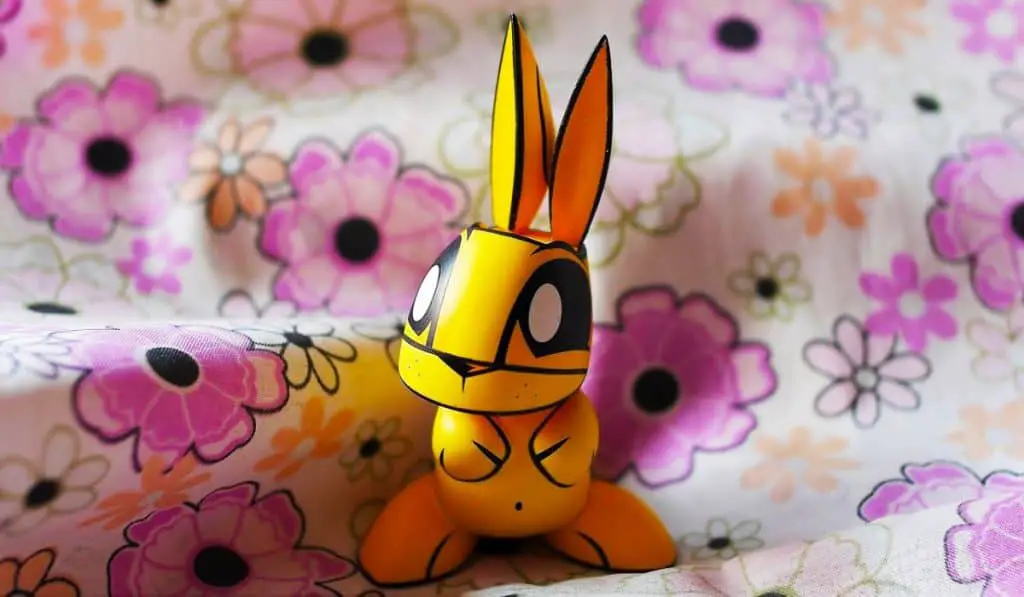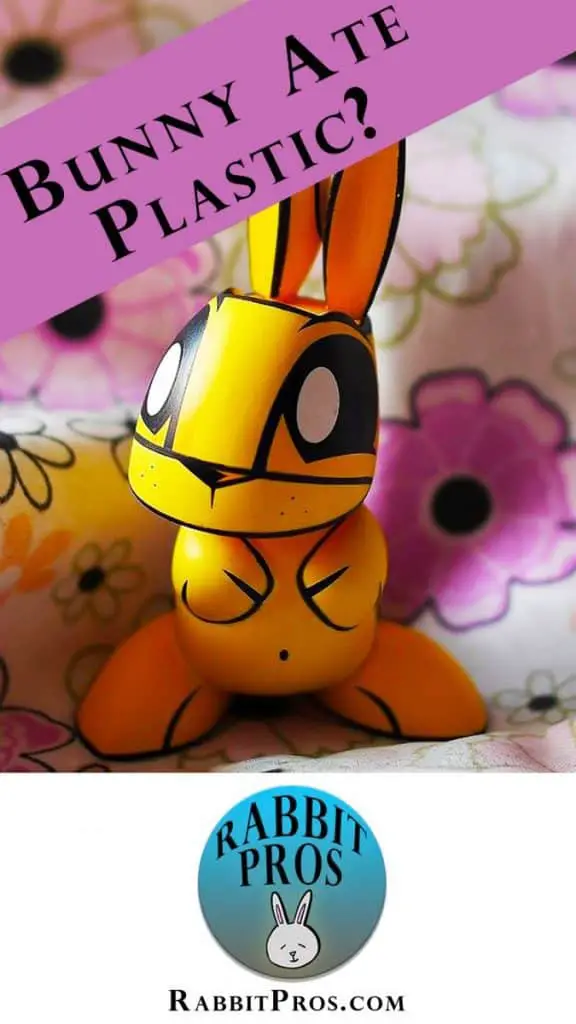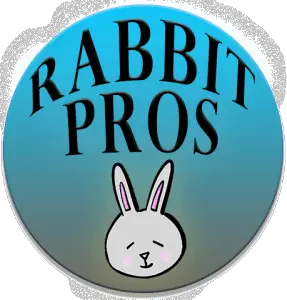Disclosure: We may earn money or products from the companies mentioned in this post.
I know you’re a little freaked out right now because your pet bunny ate some plastic. Take a big breath. It probably isn’t a big deal, but it could be, so let’s figure this out.
Why Rabbits Chew On Plastic
Rabbits chew plastic and other things because their teeth grow continually and the only way they can keep them from getting too long is to chew on things. Chewing on stuff is a natural behavior that cannot be entirely stopped. Instead, you should direct them to safe chew items.
Plastic isn’t going to be most rabbits’ first choice for chewing, but if they don’t have a better option they will chew on plastic.
I’ve known of rabbits that have eaten all kinds of plastic products, including:
- Army Men
- Hair Brush Handles
- Hair Brush Bristles
- Wrappers
- Package Straps
- Rabbit Feeders
- Litter Boxes
Did Your Rabbit Actually Eat Plastic
Now make sure that your rabbit actually ate the plastic that she chewed up. In my experience, some rabbits are just chew-and-spit, while others are chew-and-eat.
Take a look around to see if you can find tiny bits of chewed-up plastic on the floor nearby.
If you can’t find the plastic bits, then your bunny probably actually ate the plastic, but that doesn’t mean she’s going to get sick or worse.

Will Eating Plastic Kill Your Bunny?
If your rabbit ate a little plastic, they will probably be just fine. The vast majority of the time small bits of plastic will easily pass through your bunny’s digestive system. While eating plastic can lead to medical complications that are a real risk to your rabbit’s life, such outcomes are rare.
Rabbits chew on lots of things, and I’ve been told stories of rabbits eating everything from the insolation out of the wall to the wheels off of a skateboard. In both those cases, those rabbits were fine.
The biggest risk is that the plastic might get stuck somewhere in your bunny’s digestive tract which could cause discomfort, tissue damage, or severe constipation which could be deadly.
However, there are some things that we can do to help your bunny after she eats some plastic.
Can You Help Your Rabbit To Puke The Plastic Back Up?
While it seems like a good idea to help your bunny puke to get rid of indigestible stuff, sadly it’s impossible.
Rabbits cannot puke up plastic that they ate because a rabbit’s digestive tract is a one-way path. Rabbits are physically unable to puke. Not only are rabbits unable to throw up, but they also can’t even burp or belch.

3 Things To Do If Your Bunny Eats Plastic
1. Monitor Your Rabbit For Discomfort Or Signs Of Constipation
From the moment you discover that your rabbit has eaten some plastic until at least a week later, you need to be monitoring your rabbit for signs of discomfort, pain, or constipation.
Signs Of Rabbit Discomfort Or Pain
You’re looking for symptoms of your rabbit having stomach or digestive tract discomfort or pain.
These signs that your rabbit is in pain include:
- Stopped Eating or Drinking
- Wheezing Breathing
- Pressing Stomach To The Ground
- Odd Noises When Going To The Bathroom
- Stopped Pooping
- Odd Or Misshaped Poop
- Any Signs Of Blood In Her Stool
If your rabbit has eaten plastic and you see any of these signs, you should take your bunny to your veterinarian immediately.
Honestly, if any bunny exhibits two or more of these symptoms for over a day you should get them to your vet.
Your vet will first confirm the signs of discomfort or pain with a physical examination of your rabbit. If the vet agrees that there might be an issue, he’ll probably recommend an x-ray and maybe even surgery to remove the obstruction.
This is not the usual outcome of a rabbit eating something they shouldn’t, but it’s a possible outcome. You deserve to be aware.
2. Keep Your Rabbit Well Hydrated
Your bunny will have an easier time passing any plastic they ate if they are well hydrated. Not only will the thing they ate be better lubricated, but their tissue will be more flexible when well hydrated.
Just make sure your bunny has continual access to clean water.
If your bunny isn’t a big drinker, you might be able to get her to drink more by putting a little fruit juice in her water or adding an ice cube during warmer summer days.
3. Feed High Fiber Foods To Help Push Things Through
To help your rabbit pass the plastic she ate, give her fewer pellets and more high-fiber foods.
These high fiber foods that might help pass the plastic more quickly include:
- Hay
- Fresh Grass
- Fresh Weeds
ProTip: An old veterinarian told me that giving canned Pumpkin Puree would lubricate the digestive tract and push the indigestible item on through. Worked like a charm, but I save this for the toughest cases. I don’t want our rabbits to get spoiled with this sweet treat.
How To Keep Your Rabbit From Chewing On Plastic
The only way to keep your rabbit from chewing on plastic is to keep her away from plastic. That means choosing a non-plastic rabbit house, feeders, waterers, and toys. You can also reduce plastic chewing by making sure that your rabbit has access to good chew toys made of natural materials.
Not all bunnies get in the habit of chewing on plastic, as a matter of fact, most don’t.
I believe that if you give your bunny access to good wood chew toys from day-one, they are much less likely to start chewing on plastic things.
If you’d like to see what toys we keep around for our rabbits, check out our “Recommended Gear” in the menu above…or just click here.
Your Rabbit Friend,
~Stacey
